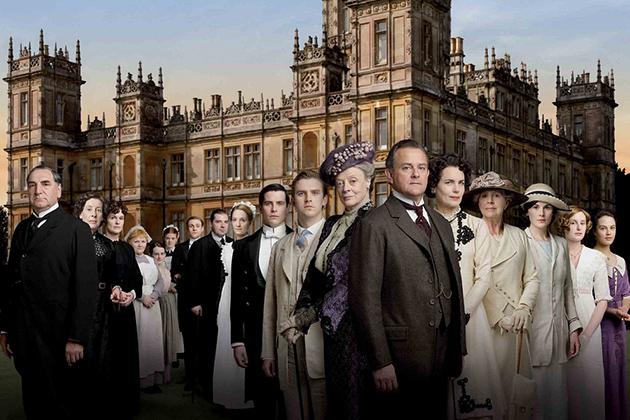
Jeremy Teitelbaum, dean of the College of Liberal Arts and Sciences, is a guest contributor to UConn Today. Read his previous posts.
Spoiler Alert: If you haven’t seen Downton Abbey, this post contains spoilers. Of course, even if you haven’t seen Downton Abbey, you probably know the entire plot anyway because your friends won’t stop talking about it.
I love TV. I love science fiction shows, like Star Trek, Battlestar Galactica, and Firefly. I love political thrillers, like the new House of Cards, and police procedurals, like The Wire. I love a good sitcom like The Big Bang Theory or 30 Rock. I even love The Good Wife, The Mentalist, and Bones. It’s pretty clear that I have a low threshold for suspension of disbelief and a high tolerance for silliness.
But even I can only take so much nonsense, and, for me, one show has finally crossed the line. It may be showing on PBS, it may carry the Masterpiece label, and it may be introduced by Laura Linney, but Downton Abbey is too silly even for me.
At the core of the show is the idea, rooted in noblesse oblige, that Downton’s Earl of Grantham cares deeply about the servants who look after his wardrobe and the impoverished peasants who live on his estate. This notion is ridiculous, because, in every other way, the Earl is a pretty realistic example of his class. Concerned primarily with protecting the position that he has secured by marrying a vapid American woman for her fortune, he exhibits the criminal stupidity about money, the casual racism, and the gullibility that enabled people like him to bring the world Gallipoli.
The younger generation of Granthams are no better. The Earl and his wife have managed to pass on their value system and their stupidity to Lady Mary, their eldest daughter. Her very being is tied up in the Downton Estate, which, considering that she has no apparent interests or education outside of Downton, is not surprising. She pressures her husband to invest his windfall fortune in the estate while objecting to any change in its management, an argument she fortunately loses. Never mind modern management methods or capital investment, it’s not until she gives birth to a son and heir that she exclaims “at last, Downton is safe!”
The unpleasant fact is that the British nobility of the early 20th century are probably the worst people one can still cast as the good guys in a television show. After all, you really can’t put slaveholders or Nazis as sympathetic characters on TV these days.
Disgusted with the Earl and his family? Consider the people “downstairs.” The upstairs family structure above is reconstructed below. Mr. Carson the butler and Miss Hughes the housekeeper play the roles of Daddy and Mommy, stripped of any sexual connotations, while the rest of the staff sleep in their child-sized beds in their sparsely furnished child-sized rooms upstairs. It all seems charming until you think for a moment that the intelligent and capable Anna spends her days doing Lady Mary’s hair, and the mysterious and dangerous Mr. Bates helps Lord Grantham put on a tux every evening for dinner. This is a life?
Tom Branson, the Irish chauffeur turned member of the family, tells the story of watching some of the British nobility turned from their house during the Irish Troubles. To the Granthams’ shock, Branson admits to feeling some satisfaction at the event. I’m with him. Too bad he gets co-opted and ends up as another one of the Earl’s lackeys.
The unpleasantness of the Earl and his family, and the saccharine unreality of the depiction of the servants’ life and feelings, makes Downton Abbey painful. The plot makes it unwatchable.
I don’t object to the basics. After all, the device of the man with daughters whose entailed estate must go to a distant relative is time-honored. It worked very well for Jane Austen in both Sense and Sensibility and Pride and Prejudice, and despite the fact that Downton takes place a hundred years later we can give it a chance.
But how many blatantly mechanical devices must we swallow? The heir drowns on the Titanic. People who are paralyzed walk again. People sentenced to hang are pardoned at the last moment and are later magically freed by new evidence. Mysteriously disfigured people appear, claim to be lost heirs, and then vanish without explanation. Inconvenient fiancés and husbands drop dead of convenient illnesses just when needed. And then, in the past season, the grim reaper carries off characters simply because the actors who play them have other commitments! It’s intolerable!
Like so many others, I was somehow seduced into accepting this absurd world of caring Earls, happy servants, and deus ex machina plot developments. Perhaps the show appeals to that part of all of us that wants to surrender agency and live in a world where we are just told what to do. But no more. I’ve watched three seasons of Downton Abbey and I’ve had it. Sesame Street should have the last word about this show. There’s only so much nonsense one person can stand.
I wonder when Season Four will air?



